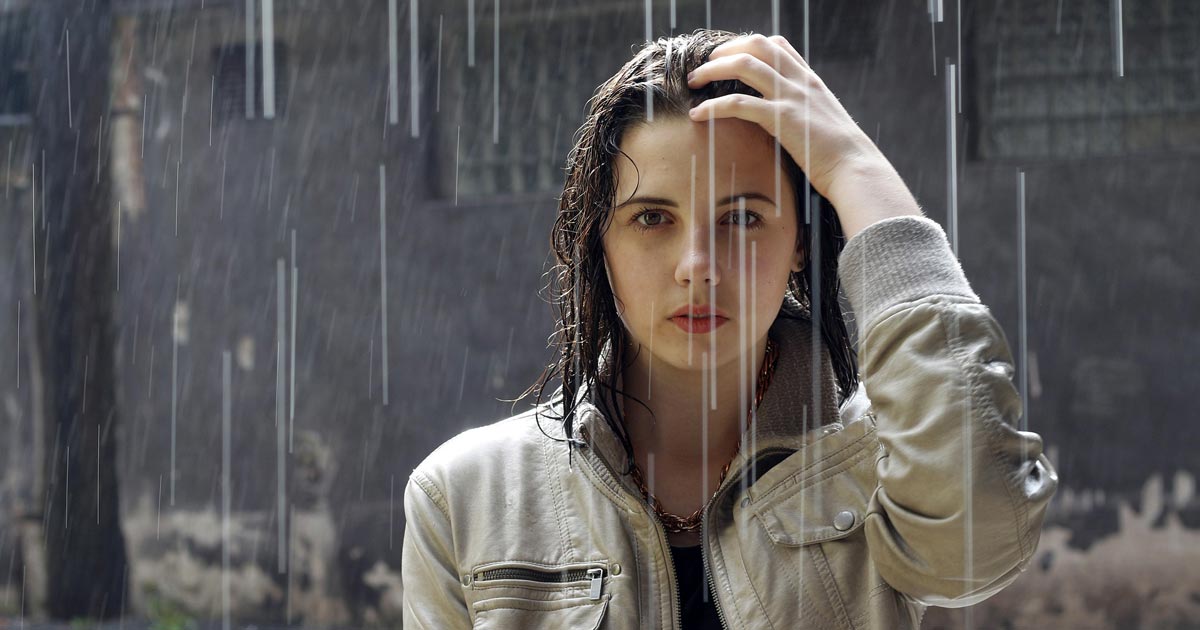Weather and your Pool

Just like your mood, your pool is affected by the weather. Well ok…not just like your mood.
Cool & Rainy
Rain is going to affect your pool water in a myriad of ways. First, rain typically has a pH of about 5.0 quite a bit lower than the ideal 7.4 to 7.6, so if you get a lot of rain especially over a number of days, your pH is going to need some attention. Although rain will lower your pH, this is not the biggest reason your pool water is affected. The most significant reason is when it rains as those raindrops are falling through the air they are collecting algae, soot, dust and who knows what else and dropping it right into your water.
A little rain shower is not going to affect the pool water much, and if you have been maintaining proper water chemistry before the rain, you will likely not notice any change at all. But a substantial rainfall of more than an inch is going to require some attention. You may have to drain some water from your pool, and you should check your pH, calcium and sanitizer levels. You will also be well served by adding an extra dose of maintenance algicide to your water to deal with all the new algae that came into your pool with the rain.
Hot & Sunny
Hot and sunny weather is the best time to be a pool owner. Nothing beats sitting by the water, listening to music, enjoying your beverage of choice and taking the occasional dip in the water to cool off. But the chlorine level in your pool is taking a hit while you soak up the sun. When chlorine combines with water it forms hypochlorous acid, this is the killing agent that reacts with the lipids in cell walls rupturing them and destroying algae, bacteria and other pathogens. But when a ray of sunshine hits this hypochlorite ion, it breaks it apart, allowing the chlorine to “off-gas” into the atmosphere. In fact, on a bright sunny day, as much as 90 percent of the free chlorine in a pool can be lost in just two hours! Because chlorine is so prone to leaving your pool you need two things: a constant source of new chlorine and a stabilizing agent to protect your existing chorine. New chlorine is added via tabs, a chlorine feeder or the like and you can give your chlorine it’s very own sunscreen by adding cyanuric acid also known as a stabilizer to your water.
The other reason the hot weather is hard on your pool is that the bather load is likely higher. And those bathers are also likely sweater and oilier than they were in the spring. Sweatier, because they are hotter and oilier because they are using more sunscreen. All these nitrates and things put additional strains on your chlorine level. It is a good idea to routinely check your chlorine level and to do maintenance shocking weekly, but you should almost certainly shock your pool after a party to break apart combined chlorine and to help boost what will be a lowered total chlorine level.
Warmer water also uses more chlorine, not directly but because bacteria and algae grow faster in warmer water; which means you are using more free chlorine to kill these new “swimmers.”